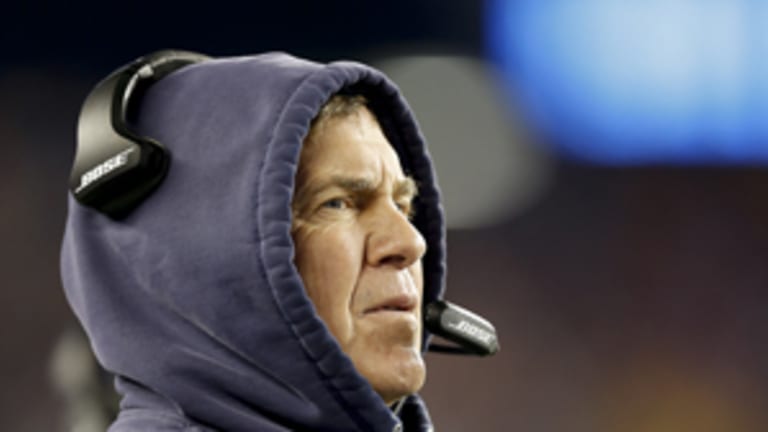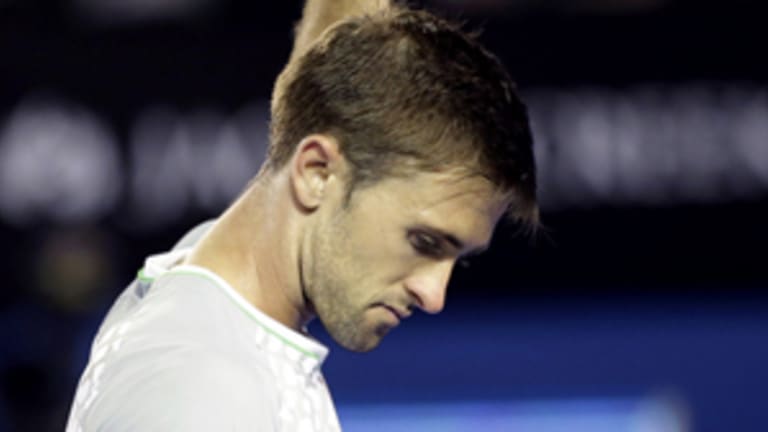Smyczek vs. Belichick—tennis obviously gets the better of that comparison at the moment. And in Smyczek’s gesture, we did see something that makes this game special: Tennis offers an opportunity for sportsmanship, a history of it, and an expectation of it. In most other games, it's a given that you try to subvert the rules whenever possible—as the saying goes, "If you ain’t cheatin’, you ain’t tryin'", and the true crime is getting caught. In baseball, a batter would never give the pitcher a strike if he thinks the umpire got the call wrong. In American football, a receiver would never admit that he didn’t have possession of the ball in-bounds. In soccer... well, we know all about soccer and bending it—bending the rules to the breaking point, that is. As any head football would tell you, the ends justify the means in professional sports, because winning, and only winning, is your job.
But tennis retains the vestiges of a code of honor, rather than just a book of regulations. When you play it recreationally, you make all the calls yourself—even, in the case of double-bounces and double-hits, on yourself. When you're on court, you show the world your skills, and your ethics. At the highest levels, because the sport remained amateur for its first 100 years, with no prize money on the line, 19th-century ideas of sportsmanship that had become archaic everywhere else were kept alive on tennis courts. In its original Victorian public-school form, the game was supposed to teach values, to turn boys into well-mannered men.
This moral dimension was an aspect of all the sports that evolved during that time—cricket, rugby, soccer, hockey, and their American off-shoots—and it’s why we still cling to the old-fashioned and arguably untenable idea that athletes should be role models, rather than just entertainers. But tennis in the early part of the 20th century was often a testing ground for ideas of sportsmanship. In the 1930s, Don Budge spent time debating who had the more perfect concept of it, Bill Tilden or Baron Gottfried von Cramm. Tilden, ever the dramatist, liked to ostentatiously give back points when he thought an opponent had been robbed; for a time, Budge copied him. Then Cramm, the German aristocrat, told Budge before one of their matches that no one should give a a point back because it made the linesman who got the call wrong look bad. Budge eventually decided this was the purer form of sportsmanship.
By the 1970s, of course, money was in the game, and gentlemanly behavior, at least among the men, was flying out the window. In the middle of that wild-west decade, tennis created a Code of Conduct to regulate bad behavior, something it had never needed during the amateur era. But the men’s game has matured since then; Nadal, Roger Federer and Novak Djokovic are the models now, rather than Ilie Nastase, Jimmy Connors, and John McEnroe. With them, honor, rather than just simple rule following, has begun to creep back in. Nadal, Djokovic, and others will overrule calls against themselves. Jonny Marray alerted an unsuspecting umpire that he had touched the net on a volley in the middle of a Wimbledon doubles final. When Milos Raonic didn’t do the same thing in a match in Canada two years ago, he was roundly shamed for it. And now there's Smyczek. (Still, no one, to my knowledge, has matched Cramm’s standards. Can you imagine a player today accepting a bad call because he or she didn’t want toembarrass the linesperson?)

